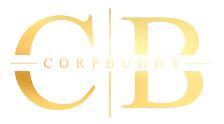INTRODUCTION
In the modern legal and corporate environment, decision-making often involves complex interpretations of laws, policies, or transactions. To ensure accuracy, compliance, and strategic soundness, a Second Opinion and Research Report serves as a crucial professional service.
A Second Opinion refers to an independent evaluation or review of a legal, financial, or regulatory issue that has already been examined by another professional or firm. It helps verify conclusions, identify potential oversights, and ensure that the advice or decision aligns with current laws, judicial precedents, and business interests.
A Research Report, on the other hand, involves in-depth legal or regulatory analysis of a specific question, issue, or transaction. It presents findings, interpretations, and possible implications backed by statutes, case laws, and administrative guidance.
Together, these services promote transparency, risk mitigation, and informed strategic choices for individuals, businesses, and legal practitioners.
PURPOSE AND IMPORTANCE
The key objective of obtaining a second opinion or a legal research report is to ensure accuracy, compliance, and due diligence. These services are particularly vital where the stakes are high, or the interpretation of law is unclear or evolving.
They help in:
- Validating the correctness of previous legal advice.
- Identifying potential compliance gaps or litigation risks.
- Exploring alternative legal interpretations and remedies.
- Supporting corporate decision-making with authoritative research.
- Ensuring that strategies or documents stand judicial and statutory scrutiny.
A second opinion acts as a legal safeguard helping clients make well-informed decisions backed by independent and objective analysis.
LEGAL AND PROFESSIONAL FRAMEWORK
While there is no specific statute regulating the issuance of second opinions or legal research reports, these services are governed by ethical and professional standards applicable to practicing professionals such as:
- The Advocates Act, 1961 and Bar Council of India Rules for legal practitioners.
- The Companies Act, 2013 and SEBI Regulations for corporate opinions and compliance assessments.
- Income Tax Act, 1961 and GST laws for taxation-related opinions.
Professionals providing such opinions must ensure objectivity, due diligence, and confidentiality as per the Code of Conduct and Ethical Guidelines laid down by their governing institutions.
STRUCTURE OF A SECOND OPINION OR RESEARCH REPORT
A well-structured opinion or research report generally includes:
- Introduction / Background: Brief description of the matter under consideration and the issue on which opinion is sought.
- Facts and Documents Reviewed: List of documents, data, or representations examined.
- Legal Framework: Reference to relevant statutory provisions, notifications, circulars, or case laws.
- Analysis and Findings: Detailed interpretation, logical reasoning, and assessment of applicable laws.
- Conclusion and Opinion: Clear, concise, and reasoned final view of the professional.
- Recommendations (if any): Practical suggestions for compliance, amendment, or remedial action.
Each report must be independent, research-backed, and defensible under scrutiny by regulators or courts.
AREAS WHERE SECOND OPINION AND RESEARCH REPORTS ARE COMMON
These services are frequently sought in:
- Corporate and Commercial Law: Shareholding structures, director liability, contracts, mergers, and acquisitions.
- Taxation Matters: GST, income tax disputes, input credit claims, and classification issues.
- Intellectual Property Rights (IPR): Patentability, trademark conflicts, and licensing agreements.
- Real Estate and Property Law: Title verification, encumbrance, and due diligence.
- Banking and Financial Regulations: FEMA compliance, NBFC regulations, and loan documentation.
- Litigation Strategy: Evaluating the strength of a case before initiating or defending proceedings.
BENEFITS OF OBTAINING A SECOND OPINION
- Risk Reduction: Detects gaps, errors, or unaddressed risks in the initial opinion.
- Enhanced Credibility: Strengthens legal or compliance positions before regulators or courts.
- Objectivity: Provides an unbiased, independent assessment without influence from earlier conclusions.
- Informed Decision-Making: Ensures that decisions are based on comprehensive analysis and multiple perspectives.
- Cost Efficiency: Helps prevent expensive litigation or compliance penalties arising from flawed advice.
RESEARCH METHODOLOGY
A professional research report relies on:
- Statutory provisions and amendments.
- Judicial precedents and tribunal rulings.
- Regulatory circulars and clarifications.
- Scholarly commentary and comparative analysis.
- Practical case assessments and industry benchmarks.
Professionals use these sources to present a holistic legal or regulatory analysis tailored to the client’s specific query.
